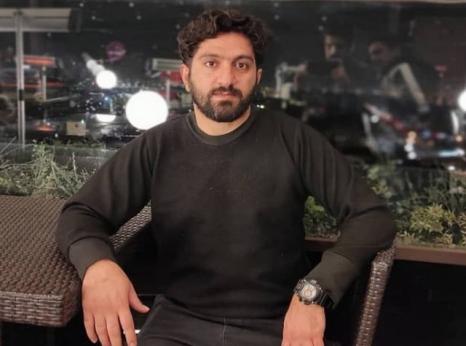Iran: Man At Grave Risk Of Protest-Related Execution In Iran

From September to December 2022, an unprecedented popular uprising against the Islamic Republic system took place across Iran sparked by the death in custody on 16 September 2022 of Jina Mahsa Amini days after her arbitrary arrest by Iran’s “morality” police. Iranian authorities extensively and unlawfully fired live ammunition, metal pellets and tear gas and subjected protesters to severe beatings. Hundreds of protesters and bystanders were unlawfully killed by security forces, including dozens of children, and thousands sustained injuries for which many did not seek medical care due to fear of arrest. More than half of those killed belonged to the oppressed Baluchi minority in Sistan and Baluchestan province and the Kurdish minority in the provinces of Kurdistan, Kermanshah and West Azerbaijan. From early November 2022, Kurdish human rights groups reported a “highly securitized atmosphere” in Kermanshah province marked by the extensive deployment of security forces. This development underscored the authorities’ increased repression in anticipation of protests between 15-19 November 2022 to commemorate the protest killings of November 2019.
To date, the authorities have arbitrarily executed eight people in connection with the protests of 2022 after grossly unfair trials marred by torture allegations. On 23 November 2023, authorities executed Milad Zohrevand, ten days after the Supreme Court upheld his conviction and death sentence for “murder” in relation to the death of a Revolutionary Guards agent during the protests. According to human rights activists based outside Iran, after his arrest in connection to a protest in Malayer, Hamadan province, he was denied access to a lawyer.
Torture is a violation of international law and its use is prohibited under all circumstances. Statements elicited as a result of torture, ill-treatment or other forms of coercion must be excluded as evidence in criminal proceedings, except those brought against suspected perpetrators of such abuse. In view of the irreversible nature of the death penalty, the proceedings in capital cases must scrupulously observe all relevant international standards protecting the right to a fair trial. Anyone arrested or detained on a criminal charge must be treated in full compliance with Iran’s human rights obligations including rights to a fair trial. These include the rights to choose one’s own lawyer; to access effective legal assistance from the time of arrest and throughout the pre-trial and trial proceedings; to be brought promptly before an ordinary civilian judge; to challenge the lawfulness of detention before an independent, impartial tribunal; to be presumed innocent; to remain silent and not to be compelled to incriminate oneself or to confess guilt; to obtain full access to relevant evidence; to not be detained on vague charges; to examine and cross-examine witnesses; to receive a fair, public hearing before a competent, independent and impartial tribunal; and to be provided with a public, reasoned judgement. Amnesty International has consistently documented a pattern of systematic violations of the rights to a fair trial in Iran from the time of arrest and throughout the investigation, trial and appeal proceedings. Courts routinely ignore allegations of torture and other ill-treatment, without ordering an investigation, and rely on torture-tainted “confessions” to issue convictions and sentences, including in death penalty cases. Under international law, the imposition of the death penalty following an unfair trial constitutes an arbitrary deprivation of life.
Ethnic and religious minorities in Iran suffer entrenched discrimination in law and in practice. Iranian authorities curtail the access of ethnic minorities to education, employment and political office. Religious minorities, including Yaresan, also are subjected to discrimination in law and practice, including in access to education, employment, child adoption, political office and places of worship.
The Iranian authorities have recently embarked on another alarming execution spree, executing at least 115 people in November 2023 alone or almost double the number of executions carried out in November 2022. This spike comes against the backdrop of the Iranian authorities intensifying their use of the death penalty as a tool of political repression, including against protesters, dissidents and members of oppressed ethnic minorities. For instance, on 2 January 2024, the authorities arbitrarily executed Iranian Kurdish man Davoud Abdollahi, sentenced to death for “corruption on earth” following a grossly unfair torture-tainted trial. The authorities are using this ultimate cruel and inhuman punishment to torment and terrorize people in Iran and impose silence and subservience through brute force. Amnesty International opposes the death penalty in all cases without exception. The death penalty is a violation of the right to life and the ultimate cruel, inhuman and degrading punishment. Amnesty International has consistently called on all states that retain the death penalty, including Iran, to establish an official moratorium on executions, with a view to completely abolishing the death penalty.